In their quest for sustainable agriculture, farmers are looking to use natural materials that not only feed the plant but also promote the overall soil health in the long term. Among such natural materials is tea saponin, a compound found from the seeds of Camellia plants commonly referred to as tea seed meal. It is being promoted as a key element in promoting plant growth and fertile soil. Popular for its antimicrobial, surfactant, and pest-repellent characteristic, tea saponin presents a triple benefit to crop yield increase and environmental stewardship.
This piece delves into the composition of tea saponin, how it functions, and how it can be utilized as a natural fertilizer and soil conditioner for agricultural produce.

What is Tea Saponin? Learn.
Tea saponin is also a glycoside compound found naturally in Camellia oleifera and Camellia sinensis seeds. Tea saponin is a by-product in tea oil production and is thus a substitute farm input. Saponins have also been said to be soap-like in that they create foam in the presence of water, and tea saponin accomplishes exactly the same.
What is distinctive about tea saponin is that it has a blend of soil-construction and plant-protection properties. Not only does it provide nutrients to crops, but also suppress diseases and insects in soil without leaving any trace residues.
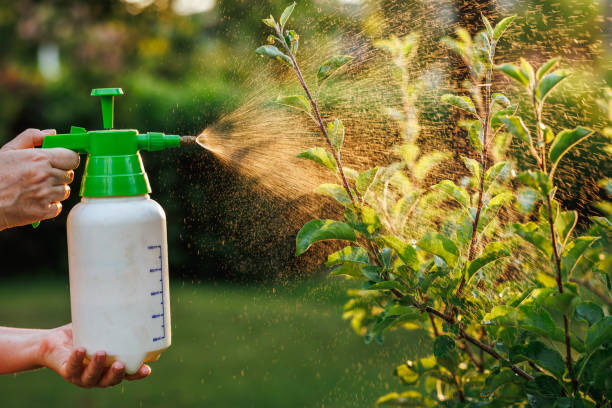
Worth of Composition of Tea Saponin
Although tea saponin is highly prized for its biological activity, carrier material tea seed meal has nutritional value that adds fertility to the soil:
- Organic matter – Enhances soil porosity and water holding capacity.
- Nitrogen, phosphorus, potassium – Essential macronutrients for plant development.
- Secondary metabolites – Impart antimicrobial and antifungal activity.

How Tea Saponin Works in Plants and Soil
Tea saponin works with the plants and soil as follows:
- Improving Nutrient Absorption – Surfactant action enhances nutrient solubility and transport so that more convenient absorption by the plant roots of minerals is enabled.
- Improving Soil Microbial Balance – Allows beneficial microbes to inhibit pathogenic bacteria and fungi.
- Pest Deterrence in Soil – Serves as a natural nematicide and molluscicide, preventing damage to roots.
- Soil Aeration Improving – Tea seed meal organic matter loosens compacted soil, enabling roots to breathe and grow deeper.
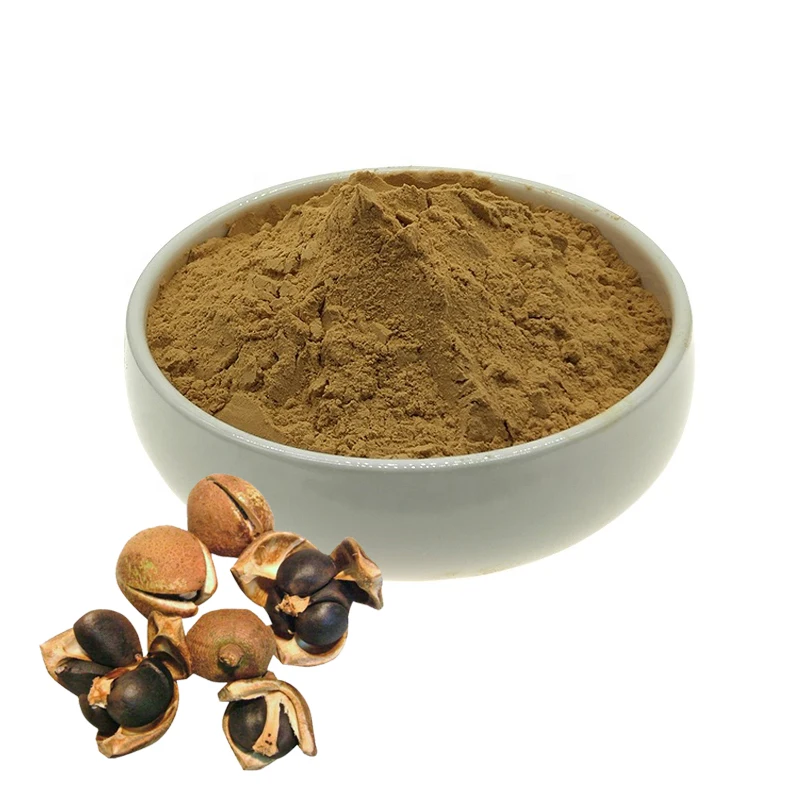
Tea Saponin as Natural Fertilizer
Tea saponin is used in its unprocessed state as tea seed meal or processed to powder. Its fertilizer effect derives its origin both from the provision of nutrients and biological activity.
1. Supply of nutrients
- Tea seed meal provides proteins and minerals that are released slowly into the soil as they break down. This slow release slows down leaching of nutrients and gives plants an even supply of nutrition.
2. Soil Organic Matter Amendment
- Tea saponin raises organic matter content, enhancing cation exchange capacity (CEC) of soil so that the soil will be in a better position to retain more nutrients for the crops.
3. Balanced pH
- Regular use keeps it slightly acidic to neutral, ideal for most crops.

Tea Saponin as a Soil Boler
1. Improvement of Soil Structure
- Organic matter from tea seed meal breaks up heavy clayed soil, enhancing root penetration and aeration.
2. Moisture Retention
- In sandy soils, tea saponin retains water by entrapping soil organic matter.
3. Microbial Action
- Tea saponin promotes beneficial microorganisms like mycorrhizal fungi that increase nutrient and water uptake.

Pest and Disease Suppression Benefits
Apart from being a fertilizer, tea saponin is a natural pest controller:
- Molluscicide – Snail- and slug-controlling, and capable of killing young seedlings.
- Nematicide – Root-knot nematode controlling to prevent stunted plant growth.
- Antifungal Activity – Antagonizes fungal diseases of the soil-borne type such as damping-off and root rot.
- This dual function-nourishing plants and safeguarding them-restricts the application of synthetic pesticides.
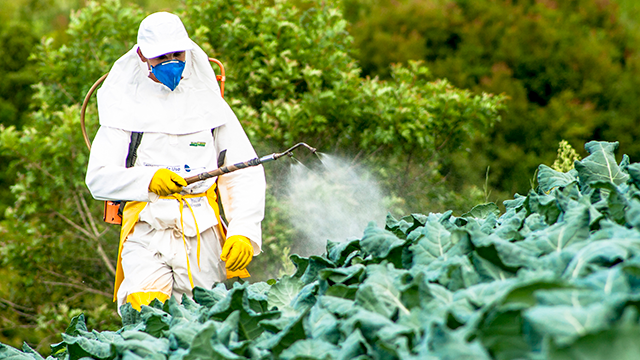
Methods of Application
1. As Soil Amendment
- Rate of application: 50–200 kg/hectare based on soil condition.
- Method of application: Mix uniformly into the top 10–15 cm of soil prior to sowing.
2. As Liquid Extract
- Dissolve tea saponin powder in water (0.5–1%) and drench soil around plants to manage nematodes and improve nutrient uptake.
3. As Seed Treatment
- Dip seeds in a diluted tea saponin solution to safeguard against root-dwelling insect pests and increase percentage of germination.
Crops That Benefit from Tea Saponin
Tea saponin can be applied on a variety of crops:
- Vegetables – Tomatoes, cucumbers, leafy greens, peppers.
- Fruits – Strawberries, grapes, citrus fruits.
- Cereals – Rice, wheat, maize.
- Ornamentals – Roses, orchids, and other flowering crops.

Environmental Benefits
Tea saponin promotes sustainable farming:
- Biodegradable and Non-toxic – Naturally degrades without contaminating soil and water.
- Reduces Chemical Dependency – Reduced use of synthetic pesticides and fertilizers.
- Supports Biodiversity – Promotes healthy soil organisms and decreases damage to pollinators.

Scientific Evidence for the Use of Tea Saponin
Research indicates the various advantages of tea saponin:
- Soil Pest Management – Laboratory tests indicate tea saponin decreases nematode populations substantially while enhancing crop yield.
- Soil Fertility Promotion – Field tests indicate higher organic matter and improved nutrient status following the use of tea seed meal.
- Crop Performance – Users of tea saponin report improved root growth, healthier foliage, and improved fruiting.
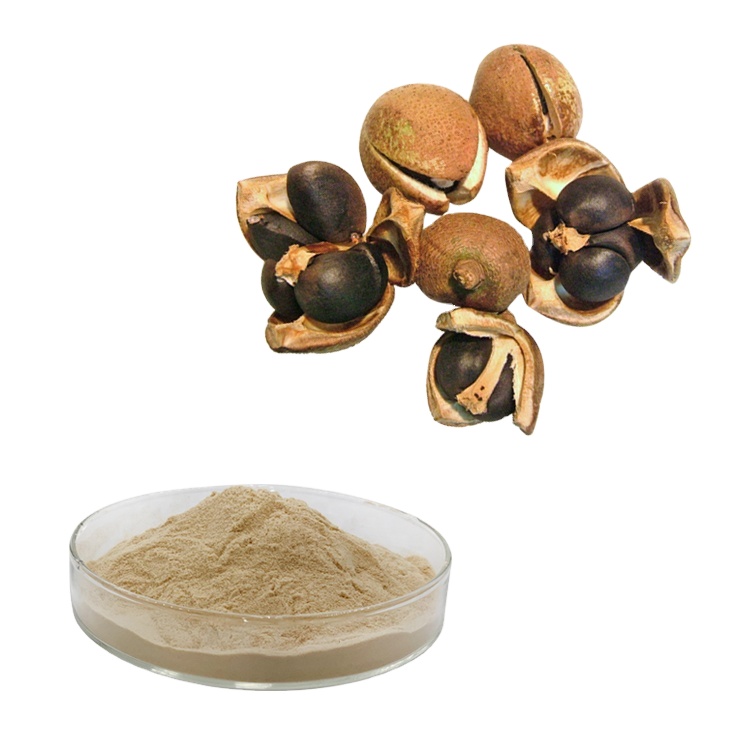
Potential Considerations and Precautions
Tea saponin is safe to use on most plants, but remember the following:
- Aquatic Sensitivity – Poisonous to fish and aquatic organisms, so avoid run-off into water bodies.
- Overuse Risk – Too much will temporarily suppress germination in susceptible seeds-use only the stated amount.
- Storage – Store in a cool, dry environment to retain efficacy.
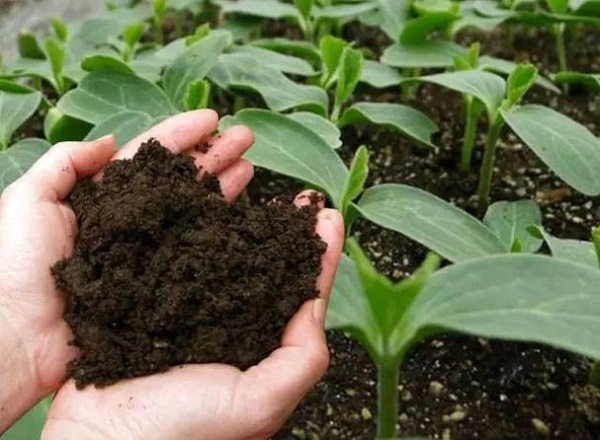
Conclusion
Tea saponin is not merely a byproduct of tea oil extraction-it's a means by which farmers and horticulturists are able to achieve sustainable crop cultivation. Utilized as an organic fertilizer, soil conditioner, and pest repellant, it gives plants necessary nutrients while also stimulating a cleaner soil condition.
With its biodegradability and dual advantage to plants and soil, tea saponin is unique among natural remedies in the increasing trend towards green cultivation. By incorporating tea saponin into ordinary agricultural practice, farmers can improve yields, keep pests at bay without pesticides, and support long-term soil fertility.
References
Huang, J., et al. (2021). Effect of tea saponin on soil nematodes and crop yield. Journal of Agricultural Science, 13(5), 45–53.
Wang, L., & Zhao, X. (2019). Organic amendments with tea seed meal improve soil structure and fertility. Soil Biology & Biochemistry, 132, 12–19.
Liu, Y., et al. (2020). Antifungal and antimicrobial properties of tea saponin in agricultural applications. Plant Protection Journal, 46(3), 215–222.
Zhang, Q., & Li, H. (2018). Tea seed meal as an organic fertilizer and pest control agent. Organic Agriculture, 8(4), 317–326.











